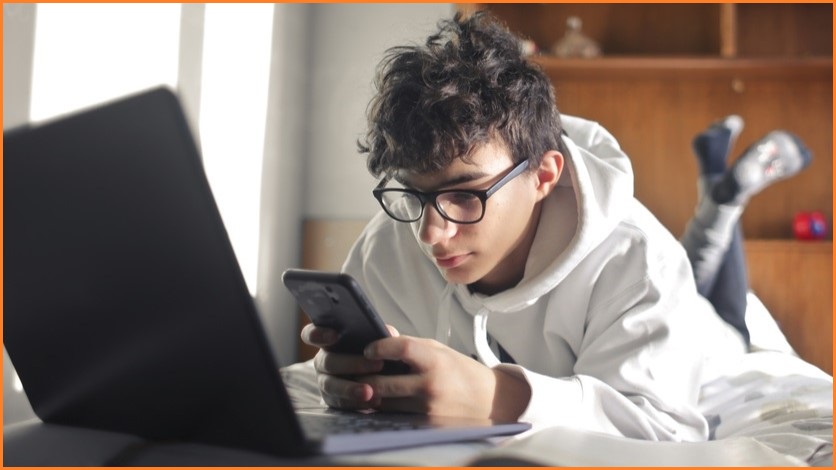A month after banning mobile devices in schools, the NSW Government will wait up to three years for evidence justifying the policy after announcing a $2.5 million research fund supporting research into the impact of “problematic” screen time on young people.
The creation of the new fund, which will be overseen by the state Centre for Education Statistics and Evaluation (CESE), will provide funding of up to $500,000 for tender grants – novel proposals for screen time-related research – and up to $200,000 for recipients of partnership grants, where research into problematic screen use is already underway.
A range of research will be considered, with key themes including identifying the key sources of “problematic screen time” for the state’s young people; evaluating the learning, wellbeing and behavioural impacts of screen use; strategies to counter the negative impacts of problematic screen time; whether today’s students are “impacted by screens in the same ways as other generations”; and how teaching has been impacted “as a result of changing digital technologies”.
The state’s newly introduced ban on mobile phones from the classroom, which came into effect at the beginning of term 4 – three years after a similar ban in Victoria – was driven not by research evidence but “after consultation with teachers, students, and parents,” NSW Premier Chris Minns said in announcing the new research funding.
“The impacts of devices on children are largely unknown,” he continued, noting that “investing in this research fund will help create a growing body of knowledge on this issue to inform our government policies [and] also help inform parents.”
Adding to the body of evidence
Despite Minns’ assertions, a broad body of research long ago established that excessive screen time is damaging to children’s development and functioning – with “profound effects” in young children making it essential to develop management strategies including modelling healthy screen usage, setting boundaries, and encouraging alternative activities.
Excessive screen time at an early age, researchers have found, creates issues with weight, motor and cognitive development, and social and psychological wellbeing that progress with age to cause emotional problems, issues with family functioning, behavioural problems, anxiety, hyperactivity, and more.
Last year, a Canadian study of 2,983 children found that children with more than one hour of screen time per day “were more likely to be vulnerable in all five developmental health domains” while a recent review of 53 screen-time studies advised studies of “intervention measures… to reduce the proportion of non-essential uses” of devices.
Based on Australian studies dating back to 2016 and earlier, national guidelines already recommend that children between 5 and 17 have no more than two hours’ sedentary recreational screen time per day, with no screen time for children under two years and just one hour per day for those 2 to 5 years of age.
A 2021 Deakin University study found that young Australians increased their screen time by nearly 27 hours per week during COVID lockdowns compared to pre-pandemic figures, for example – with a Royal Children’s Hospital poll in the same year finding that 90 per cent of surveyed parents said excessive screen time was a problem.
Changes in usage patterns had driven developmental issues for young people emerging from the pandemic’s isolation – who, one recent Beyond Blue survey of 2,369 Australian teachers found, are failing to learn traits such as social awareness, body language, and emotional empathy.
Fully 57 per cent of respondents to that survey cited excessive screen time as one of the biggest issues facing young people – twice the proportion that cited bullying (28 per cent) and exceeded only by depression, anxiety, and other mental health issues.
Projects funded by the new CESE administered grants will add to this body of research, which will also be informed by long-term projects such as a long-term prospective study of 3,000 Australian families and children young people that will track screen use from birth to eight years of age.
CESE will run two rounds of funding, with the first beginning later this year and all researchers expected to deliver their findings by 2026.
“It is important that we find out how this new reality is impacting children and their development,” NSW Minister for Education and Early Learning Prue Car said.
“Investing in research is vital, so the Government can form evidence-based policies that we know will have a positive impact on our students, teachers, and larger school cohort moving into the future.”










